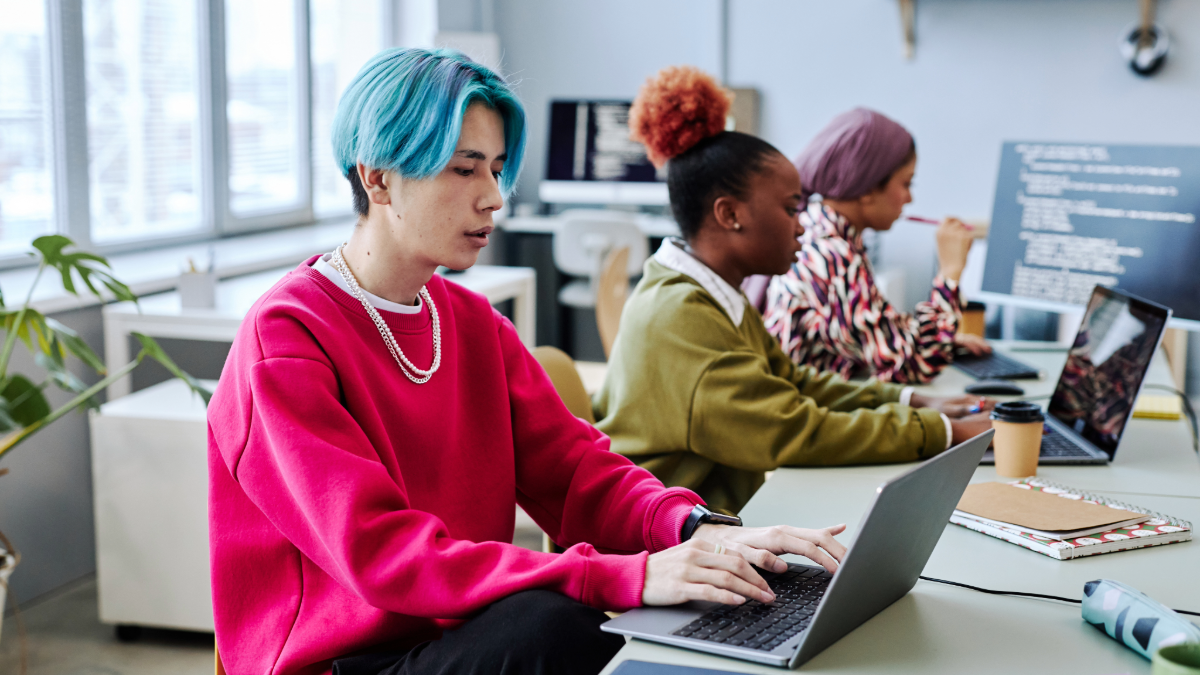The graduating class of 2025 has faced unprecedented isolation. In the latest Harvard Youth Poll, only 17% reported a deep sense of belonging to a community. One in every three young adults aged 18-25 reports feeling anxious or lonely. These feelings of isolation have draconian outcomes: a 33% increase in depression and a 16-fold increase in the risk of death by suicide. In a season that many describe as the start of life’s journey, this pervasive loneliness is heavy baggage.
Northwestern graduate Claire Throckmorton gave voice (and hope) to this class’ unique experience: "We started out more physically separate than any other first-year class, but that distance didn't keep us apart. In fact, if anything, it showed that we're better off when we're all connecting... the most important thing we learned was that we are better together than we are alone."
Being connected is a lifeline in a highly fragmented world. Many of this year's commencement speakers understood this. Rather than offering generic advice about following dreams or working hard, they focused on something more fundamental: the urgent need to find and build authentic human connection. Six different speakers offered profound insights about finding your people and building the connections that sustain us.
Make Life Better: Leap Together
At the University of Maryland, Kermit the Frog reminded the assembled crowd that we are the company we keep. An unorthodox speaker for this event (his creator, the late Jim Henson, was a Maryland alum), his message hit the mark. "Look around," he said, "These are friends you will have for your whole life, and there will be many others to collect along the way."
The most important connections aren't always obvious—to recognize them requires intention and genuine curiosity. But Kermit’s message was about more than just making friends. It was about how we collaborate to ensure a future that makes space for all of us. "Rather than jumping over someone to get what you want, consider reaching out your hand and taking the leap side by side, because life is better when we leap together."
Staying open to the wisdom and friendship of others paves the way for new insights and opportunities where you least expect them. Even from a frog.
Reject The Myth Of The Rugged Individual
At USC’s Annenberg School School of Communication, actress Jane Fonda confronted the cultural forces that impede community. "In these uncertain times, we need to strengthen our ties to our colleagues, our friends and family, because we're going to need this support for safety, for love, for help, for fun—let's not forget fun—and for survival."
Since the 1980s, society has shifted to a toxic adulation of individualism, a focus on “me and mine.” It’s “no accident,” she explained. “It's being driven by people who want us disempowered. The myth of the rugged individual who needs no one is just that: a myth created by stories through culture."
Her call to action was direct and urgent: as future storytellers, graduates must rewrite the narrative. “Don’t let anxiety, depression or hopelessness cause you to isolate…Grow yourself a deep, solid community of people who share your values, have each other’s backs, check up on each other regularly.”
Embrace Your Humanity
At Temple University, tech journalist and Wired editor Steven Levy tackled AI head on: "As amazing as AI might become, by definition it cannot be human, and therefore the human connection we homo sapiens forge with each other is unique—and gives us an edge."
Investors are spending billions of dollars to “make their models think like accomplished humans,” Levy said. But, he reminded the assembled class, “You have just spent four years learning to think as accomplished humans. The difference is immeasurable" For all of AI’s abilities, he added, it can’t replace the interpersonal connection that is our human superpower.
"AI is going to have a huge impact on the labor market.” But, “there are countless roles AI can never fill because the technology can’t replicate true human connection…you will thrive by putting your heart into your own work. AI has no such heart to employ.” Right now, the world needs human qualities: empathy, consciousness, authentic connection. His final words in a speech that affirmed the importance of humanity? “I. Am. Human.”
Find Your People
At Bucknell University, Y Combinator co-founder Jessica Livingston offered graduates concrete advice about choosing a path for the future: “Find the interesting people."
Livingston expressed what often goes unsaid. After years of following clearly prescribed paths from elementary school through college, graduates now face unlimited paths and a lot less guidance. "You can go in any direction now," she told them, but navigating that freedom requires intentional relationship building.
Interesting people aren’t just sources of inspiration—they're sources of information, opportunity, and direction. By finding the people who are doing the work you find interesting, you’ll not only work harder, you’ll enjoy it. So ask questions, listen for clues, be curious and open your mind. When you find your people, you’ll find your calling.
Weave People Together Like A Leader
At Yale, former New Zealand Prime Minister Jacinda Ardern challenged graduates to embrace what many see as weaknesses in leadership: doubt, vulnerability, and sensitivity. "We need the power of your imposter syndrome," she told the graduates, "because it's also your curiosity and your humility. We need your sensitivity, because it's also your kindness and your empathy."
Ardern explained the Māori concept of "rangatira"—a leader who weaves people together rather than commanding from above. Her message was both personal and political: the very traits that make you question yourself, that nagging feeling that you don't belong, are actually superpowers for weaving authentic connections. In a culture of individual achievement and confident leadership, Ardern urged graduates to shift perspectives: “It’s not just about you,” she said. “It’s about us.”
Heal Thyself: Connection As Medicine
At Columbia University's Mailman School of Public Health, former Surgeon General Vivek Murthy delivered an important prescription: human connection isn't just nice, it's essential medicine. Murthy has spent years researching and documenting the damage social disconnection does to our physical and mental health. It’s as dangerous as smoking fifteen cigarettes a day.
Despite his policy expertise, Murthy’s speech was personal, relating the lowest points in his career and the power of a small group of friends to shift his mindset and repair his spirit. Overcoming loneliness, he explained, isn’t about the number of people around you but about the quality of those relationships. A few caring friends can change the course of your life. Murthy's message reminds us that the cure for our isolation epidemic isn't found in therapy or medication, but in the simple act of showing up for each other.
Commencement speeches may be designed for graduates, but their wisdom is a mirror that reflects the current moment. This year’s messages offered powerful reminders of the power and responsibility of our humanity, for all of us. Connection isn't just personal. It's professional, creative, even existential. And like everything in life that matters, finding your people isn't a one-time event, it's an ongoing and intentional practice of reaching out, staying curious, and rejecting the cultural narratives that tell us we can go it alone. This year’s speeches exhorted us to embrace a life-changing mission: build the communities that sustain us all.
First published in Forbes.com.








